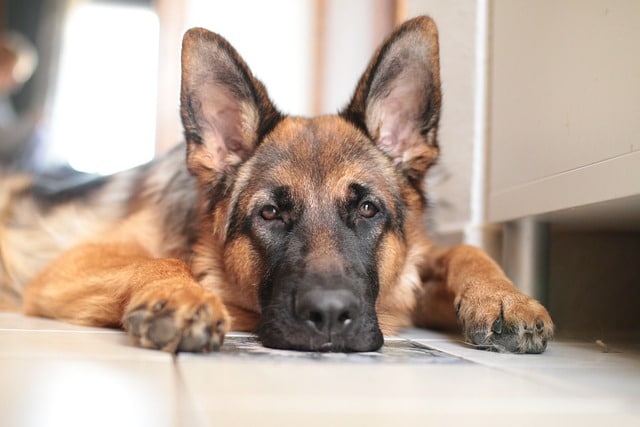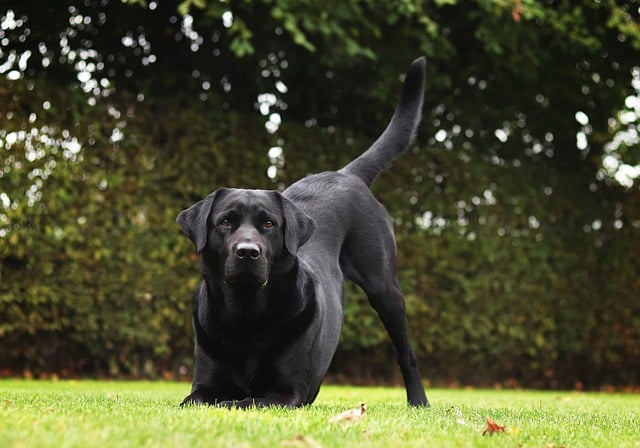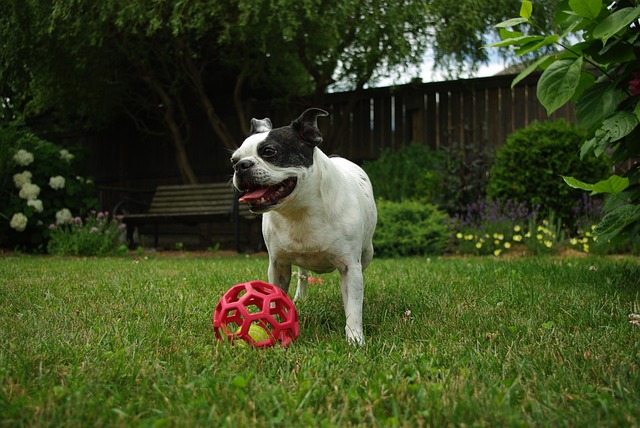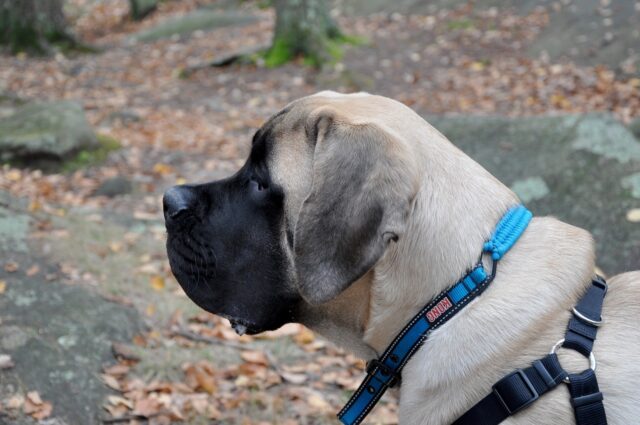Anyone who has ever owned a dog knows that flatulence is a common issue among our canine companions. While all dogs can occasionally be gassy, certain breeds are particularly notorious for their frequent and often potent emissions. These breeds may have digestive systems that are more prone to producing gas due to their dietary needs, physical structure, or unique digestive processes. Some dogs may gulp air while eating, others may have food intolerances, and still others may simply have sensitive stomachs. This article explores eleven dog breeds that are known for being especially gassy, providing insight into why these breeds are more likely to clear a room with their silent but deadly flatulence. Understanding these tendencies can help owners manage and mitigate the issue, ensuring a more pleasant living environment for both dog and human alike.
11. Boxer
Boxers are energetic, playful dogs with a tendency towards flatulence. This breed’s gassiness can be attributed to their brachycephalic (short-nosed) structure, which often leads them to gulp air while eating and drinking. Boxers also have sensitive stomachs and can be prone to food intolerances, which can exacerbate their gassy tendencies. Owners can manage this issue by feeding their Boxers a high-quality, easily digestible diet and ensuring they eat slowly to minimize air intake. Despite their gassy nature, Boxers are affectionate and loyal companions, making them a beloved breed despite their occasional odor issues.
10. Bulldog
Bulldogs are another brachycephalic breed that is well-known for their flatulence. Their short, flat noses cause them to swallow a lot of air while eating, leading to excessive gas production. Additionally, Bulldogs often have sensitive digestive systems and can be prone to food allergies or intolerances. Feeding Bulldogs a diet that is free from common allergens and rich in easily digestible ingredients can help reduce their gas. Regular exercise and avoiding table scraps can also make a significant difference. While Bulldogs may be gassy, their charming personalities and loyal nature make them worth the occasional olfactory assault.

9. Pug
Pugs are small, brachycephalic dogs that are notorious for their gassy tendencies. Like other short-nosed breeds, Pugs tend to swallow a lot of air while eating, which contributes to their flatulence. Pugs also have sensitive stomachs and can be prone to dietary issues, which can increase their gas production. Owners can help manage this by providing a balanced diet that is easy for Pugs to digest and ensuring they eat slowly. Despite their gassiness, Pugs are affectionate, playful, and entertaining pets that bring a lot of joy to their owners’ lives.

8. German Shepherd
German Shepherds are large, intelligent dogs that are also known for their propensity towards flatulence. This breed’s gassiness can often be linked to their high-energy nature and tendency to eat quickly. German Shepherds also have sensitive digestive systems and can be prone to food intolerances or allergies. Feeding them a high-quality diet that is tailored to their specific nutritional needs can help reduce their gas production. Additionally, providing regular exercise and avoiding table scraps can also make a difference. Despite their gassy nature, German Shepherds are loyal, protective, and highly trainable dogs that make excellent companions.

7. Beagle
Beagles are small to medium-sized dogs with a strong sense of smell and a love for food. Their tendency to overeat or eat too quickly can lead to excessive gas production. Beagles also have sensitive stomachs and can be prone to food intolerances, which can contribute to their gassiness. Feeding Beagles a balanced diet that is easy to digest and ensuring they eat slowly can help manage this issue. Despite their gassy tendencies, Beagles are friendly, curious, and playful dogs that make wonderful family pets.

6. Dachshund
Dachshunds are small, elongated dogs known for their playful and curious nature. Their unique body shape and tendency to gulp air while eating can contribute to their gassiness. Dachshunds are also prone to food sensitivities and digestive issues, which can exacerbate their flatulence. Providing a diet that is specifically formulated for their digestive health and ensuring they eat slowly can help reduce their gas. Despite their gassy nature, Dachshunds are loyal, affectionate, and spirited dogs that make great companions.

5. Labrador Retriever
Labrador Retrievers are one of the most popular dog breeds, known for their friendly and outgoing nature. However, they are also prone to flatulence due to their tendency to overeat or eat too quickly. Labs have a robust appetite and are often food-driven, which can lead to digestive issues and excessive gas production. Feeding them a balanced diet, portion control, and ensuring they eat slowly can help manage this issue. Regular exercise and avoiding table scraps can also make a significant difference. Despite their gassy tendencies, Labradors are loyal, intelligent, and versatile dogs that make excellent pets.

4. Shih Tzu
Shih Tzus are small, affectionate dogs with a tendency towards flatulence. Their gassiness can be attributed to their brachycephalic structure, which causes them to swallow a lot of air while eating. Shih Tzus also have sensitive stomachs and can be prone to food allergies or intolerances. Providing a balanced diet that is easy for them to digest and ensuring they eat slowly can help reduce their gas. Regular grooming and avoiding table scraps can also make a difference. Despite their gassy nature, Shih Tzus are loyal, affectionate, and charming dogs that make wonderful companions.

3. Cocker Spaniel
Cocker Spaniels are medium-sized dogs known for their friendly and affectionate nature. However, they are also prone to flatulence due to their sensitive stomachs and tendency to overeat. Cocker Spaniels can be prone to food allergies or intolerances, which can exacerbate their gassiness. Providing a balanced diet that is easy for them to digest and ensuring they eat slowly can help manage this issue. Regular exercise and avoiding table scraps can also make a significant difference. Despite their gassy tendencies, Cocker Spaniels are loyal, affectionate, and playful dogs that make excellent family pets.

2. Boston Terrier
Boston Terriers are small, brachycephalic dogs known for their friendly and outgoing nature. Their short, flat noses cause them to swallow a lot of air while eating, leading to excessive gas production. Additionally, Boston Terriers often have sensitive digestive systems and can be prone to food allergies or intolerances. Feeding Boston Terriers a diet that is free from common allergens and rich in easily digestible ingredients can help reduce their gas. Regular exercise and avoiding table scraps can also make a significant difference. Despite their gassy nature, Boston Terriers are affectionate, playful, and loyal companions.

1. Mastiff
Mastiffs are large, powerful dogs known for their loyalty and protective nature. However, they are also known for their prodigious flatulence. Mastiffs tend to eat quickly, gulping air as they consume their food, which contributes to their gassiness. Additionally, their large size and slow metabolism can lead to digestive issues that exacerbate their flatulence. Providing a balanced diet that is easy for them to digest and ensuring they eat slowly can help manage this issue. Regular exercise and avoiding table scraps can also make a significant difference. Despite their gassy tendencies, Mastiffs are gentle giants that are loyal, affectionate, and protective companions.

In conclusion, while all dogs can be gassy at times, certain breeds are particularly prone to flatulence due to their physical structure, dietary habits, and digestive sensitivities. Understanding these tendencies can help owners manage and mitigate the issue, ensuring a more pleasant living environment for both dog and human alike. By providing a balanced diet, ensuring slow eating, and maintaining regular exercise, owners can help reduce their dog’s flatulence and enjoy the many positive qualities these breeds bring to their lives. Despite their gassy nature, each of these breeds offers unique traits that make them wonderful companions, proving that a little flatulence is a small price to pay for their loyalty and affection.




